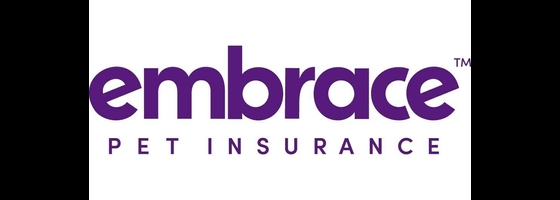- Diminishing deductible.
- Additional office visit coverage for senior pets.
- Hip dysplasia coverage.
- 10% multiple-pet discount.
Best Pet Insurance for Multiple Pets in 2024

Our evaluations and opinions are not influenced by our advertising relationships, but we may earn a commission from our partners’ links. This content is created by TIME Stamped, under TIME’s direction and produced in accordance with TIME’s editorial guidelines and overseen by TIME’s editorial staff. Learn more about it.
Owning multiple pets can be an extremely rewarding experience. Whether you enjoy watching your dogs wrestle or have a cat and a dog who are snuggle buddies, there’s nothing quite like having more than one animal around the house.
However, owning multiple pets can be much more expensive than owning just one. You’ll spend more on food, toys, and vet bills, and those bills can be significant. One way to defray these costs is to take out a multiple-pet insurance policy to help cover vet bills resulting from accidents and illness. With many providers offering a multiple-pet discount, insurance can be quite affordable. Below are several of the best multiple-pet insurance providers to help you choose the right policy.
| Pet insurance company | Best for | Annual coverage* | Reimbursement rates* | Deductible choices* | Maximum enrollment age | Multiple-pet discount |
|---|---|---|---|---|---|---|
Embrace | Diminishing deductible | $5,000, $8,000, $10,000, $15,000, or unlimited | 70%, 80%, or 90% | $100, $250, $500, $750, or $1,000 | 14 years for accidents and illnesses; no upper age limit for accident-only. | 10% |
Lemonade | Fast claims processing | $5,000, $10,000, $20,000, $50,000, or $100,000 | 70%, 80%, or 90% | $100, $250, $500, or $750 | Depends on breed | Up to 5% |
Metlife | More than two pets on a family plan | $2,000, $5,000, or $10,000 | 70%, 80%, or 90% | $50, $100, $250, or $500 | No upper age limit | 5% for the second pet and 10% for any pet thereafter |
Pets Best | Flexible deductible options | $5,000 or unlimited | 70%, 80%, or 90% | $50, $100, $200, $250, $500, or $1,000 | No upper age limit | 5% |
Spot | Flexible annual coverage options | $2,500, $3,000, $4,000, $5,000, $7,000, $10,000, $15,000, $20,000, or unlimited | 70%, 80%, or 90% | $100, $250, $500, $750, or $1,000 | No upper age limit | 10% |
ASPCA | Accident-only coverage | $3,000, $4,000, $5,000, $7,000, or $10,000 | 70%, 80%, or 90% | $100, $250, or $500 | No upper age limit | 10% |
Pawp | Emergency coverage | $3,000 per household | N/A | N/A | No upper age limit | N/A |
*Website quote mechanism used to get figures for annual coverage, reimbursement rates, and deductible choices.
Embrace is a top pick for pet insurance coverage for multiple animals for several reasons. One of the biggest is the available diminishing deductible. For every year you don’t file a claim, Embrace will decrease your deductible by $50 until it reaches $0.
In addition, Embrace offers additional coverage for senior pet office visits. As senior pets are more likely to have health issues, the cost of office visits can add up quickly, so this coverage can be a huge benefit for owners of older animals. Embrace also covers hip dysplasia, which can be a hugely expensive hereditary health condition.
Embrace has a relatively long six-month waiting period for orthopedic conditions. Still, you can waive this if you take your pet for an orthopedic exam after you take out a policy. And if you opt to add on a wellness plan, you’ll have a relatively low $650 annual maximum limit. However, despite these potential downfalls, Embrace is a solid choice for owners of more than one pet, thanks to its 10% multiple-pet discount.
Lemonade’s business model is relatively unusual in the insurance industry. Artificial intelligence can approve claims online, resulting in a faster process than many of its competitors. Lemonade states that around 40% of insurance claims are handled instantly, with the fastest recorded claim taking just three seconds to approve.
Lemonade’s pet insurance policies have a two-day waiting period for accident coverage, which is short compared with many other insurers. Lemonade’s premiums are relatively low for young animals, especially puppies and kittens, which often have higher premiums than animals over one year old.
On the downside, Lemonade’s multiple-pet discount is only 5%, and there’s no coverage offered for preventable or recurring treatments. However, Lemonade donates any money left over from paying claims to various nonprofits that support the environment, LGBTQ+ rights, and more, which can be a big positive for those who feel strongly about giving back.
While some insurers cap the number of pets you can insure at two, Metlife allows you to have up to three animals on your policy on its family plan. There are also several discount options, including through some employers (although Metlife doesn’t specify the amount of its multiple-pet discount). About 80% of claims are reimbursed within 10 days.
Metlife doesn’t offer accident-only plans, which can be a drawback if you want this coverage. Also, the company only offers parasite treatment if you opt for additional coverage. However, if you’re looking for an accident and illness policy for more than two pets, Metlife is well worth considering.
When you purchase a multiple-pet insurance policy from Pets Best, you can choose from various deductible options ($50, $100, $200, $250, $500, or $1,000). This can help you build a policy that fits your budget. It also offers a 5% discount for additional pets that can be added to a policy.
Pets Best has coverage options for chiropractic care, physical therapy, and hydrotherapy, but it does not offer coverage for herbal, holistic, or experimental treatments. However, you can have the policy pay your vet directly rather than needing to submit a reimbursement claim, making it more convenient than some other providers.
With a multiple-pet insurance policy from Spot, you can choose among nine annual maximum coverage options, ranging from $2,500 to unlimited. This makes it an affordable choice for a wide range of pet owners. Spot’s 10% multiple-pet discount also makes it a great choice for those who own more than one pet.
Spot has a 14-day waiting period for illnesses and a two-day waiting period for accidents. This is the period after taking out the insurance when coverage is restricted. However, the company offers microchipping coverage, which can be a benefit if the pet you’re insuring has not been microchipped.
ASPCA multiple-pet insurance has lower premiums for an accident-only plan than many of its competitors, making it a good choice if you want to be protected against the unexpected but live on a tight budget. The ASPCA also offers a 10% multiple-pet discount, which can increase your savings even further. And microchipping is included in all plans, so you can chip your pet for no additional charge.
The ASPCA’s maximum annual coverage limit ranges from $5,000 to unlimited, depending on your plan. Additionally, you’ll pay a transaction fee each month alongside your premium, which can slightly raise the costs of a plan.
Pawp is not a traditional pet insurance company; it’s a subscription service that helps provide emergency vet care for up to six pets per customer. When you subscribe you’ll receive a one-month free trial, allowing you to try out the service before committing. And monthly rates can be quite affordable at less than $30. If you’re unsatisfied or no longer need the service, you can cancel without penalty.
Pawp does have a 14-day waiting period, which is longer than many providers. However, if you’re looking for a pet insurance alternative that offers 24/7 virtual access to vets for diagnostics and treatment plans, you can’t go wrong by trying Pawp.
To select the best pet insurance providers for multiple pets, we researched the industry's top pet insurers and compared their offerings. With each provider we looked at the available multiple-pet discount, deductible options, and maximum annual coverage limits to determine which stood out among the competition.
RELATED: Best Pet Insurance Companies
Once we had selected our finalists, we dug deeper to see what set each insurer apart and highlighted these strengths. This list provides a solid starting point for owners of multiple pets who want to insure their furry friends with the same provider; ultimately, getting multiple quotes and comparing them will help pet owners determine which policy best suits their needs and budget.
With so many pet insurance providers, deciding the best option can be hard. Follow these steps to choose the best multiple-pet insurance company for you.
When looking for insurance coverage for more than one pet, it’s important to check with each provider you’re considering to see if it offers a multiple-pet discount and how much that discount is. In general, insurers offer multiple-pet discounts between 5% and 10%. While it might be tempting only to consider insurers with larger discounts, you may find that the best option for you has a smaller discount but offers better coverage to match your needs.
Pet insurance coverage has three main types: accident only, accident and illness, and wellness plans. An accident-only plan will cover unexpected injuries, such as a broken bone or case of poisoning. An accident and illness plan will also cover illnesses, such as ear infections and cancer. Wellness plans are usually offered as add-ons and cover preventive care, including annual checkups, flea and tick preventive medicines, and heartworm tests.
Determine the coverage you need for your pets and see whether that coverage is offered with the provider you’re considering. For example, some insurers may not offer accident-only coverage, which would rule them out if that’s the type of coverage you need.
Like other types of insurance, not all issues are covered by pet insurance. Ask the providers you’re considering to share a list of what is and isn’t covered to see exactly what you’re getting for your money.
Once you’ve chosen several potential insurers, request a quote from each and compare the cost and coverage. Make sure your quote is for the same type of coverage with each provider and that the coverage quoted is for all the pets you want to insure. Once you have these quotes, you can see which one will be the best fit.
Pet insurance works the same whether you have one pet or four. You pay a monthly (or annual) premium and receive coverage for your pet (or pets) for the policy period. If your pet gets sick or is injured, you can submit a claim to your pet insurance company to reimburse your vet bill.
The difference with insuring multiple pets is that you can get a discounted premium on each pet added to the initial pet insurance policy, which means that a multiple-pet policy can be more affordable than insuring each pet individually.
Multiple-pet insurance has several advantages and disadvantages, just like any other insurance coverage. The table below outlines the main pros and cons of multiple-pet insurance.
The cost of multiple-pet insurance will depend on each pet's type, age, and breed, so it’s hard to give a ballpark figure. However, you can expect to pay between $27.25 and $189 for a policy covering two dogs, depending on your chosen provider, according to figures compiled by Market Watch.
The cost of a multiple-pet insurance policy will depend in part on the following factors:
Yes, in most cases a multiple-pet insurance policy is worth it. The cost of vet bills can be extremely high if your pet develops an illness or is involved in an accident. Unless you have a substantial amount of money in savings, you may be unable to pay a vet bill without it.
Many insurance providers offer a discount to pet owners who insure more than one pet. The discount generally ranges between 5% and 10%, which can result in substantial savings over time. If you plan to insure more than one pet with the same provider, ask whether there’s a multiple-pet discount and how much it is.
The exact coverage will depend on the insurance provider and type of coverage you choose. However, most insurers cover the following:
Most pet insurance providers offer coverage for multiple pets, so finding this coverage isn’t necessarily difficult. Once you’ve determined which insurers may be a good fit for your needs, get a quote from each and compare them to find the best one. Check the multiple-pet policy at each provider before making your decision.
Pet insurance is usually a good idea for any pet owner, but it’s especially useful for those who own more than one animal. Pet ownership can be expensive, and that expense only increases as you add animals to your home. Most pet insurance providers offer some sort of multiple-pet discount, which can make the cost of coverage for your pets more affordable.
Yes, you can insure each pet with whichever insurance company you wish. However, you won’t be eligible for a multiple-policy discount if you insure different pets with different companies, and you’ll have to keep track of more than one set of policy documents, website logins, and contact information.
No, there is no time limit in which you have to add a second pet to your insurance policy. If you have multiple pets when you first take out the policy, you can add them simultaneously. If you adopt a second pet a few years after the first one, you can add the new pet to the coverage when you bring it home.
Yes, because most pet insurance providers reimburse the policyholder rather than paying the vet directly, allowing the policyholder to take their pets to the vet of their choosing.
The information presented here is created by TIME Stamped and overseen by TIME editorial staff. To learn more, see our About Us page.










